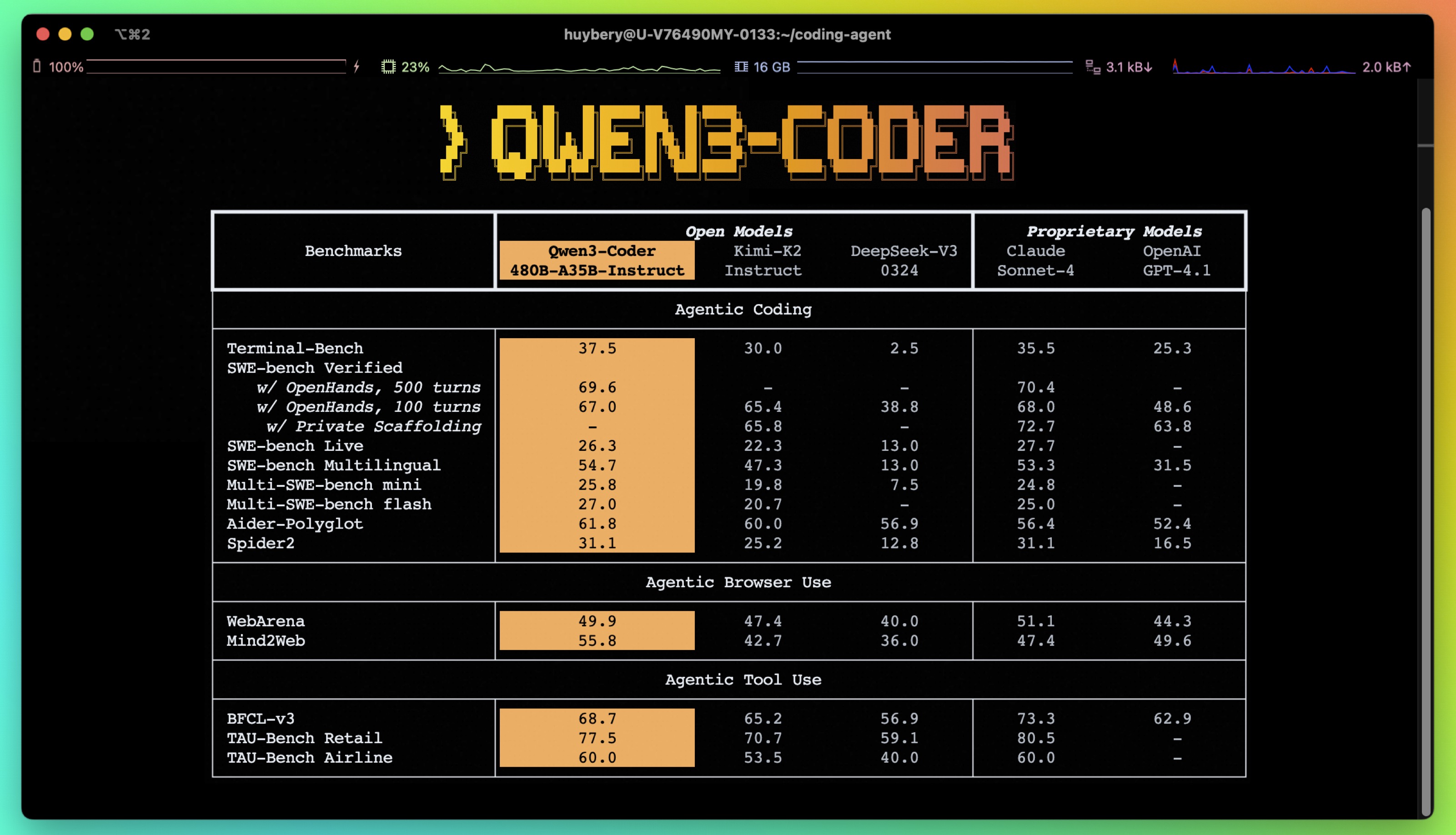Alibaba Releases Qwen3‑Coder, a 480B-Parameter Open-Source Model for Autonomous Coding
The Qwen team at Alibaba has launched Qwen3‑Coder, a massive open-source AI model designed for complex coding workflows. With 480 billion parameters and support for a 1 million token context window, the model challenges proprietary leaders like Claude Sonnet 4 while remaining freely available under Apache 2.0.



Alibaba’s Qwen3‑Coder is its most powerful AI coding release yet. Built as a Mixture-of-Experts model with 35 billion active parameters per inference, it’s tuned for tasks involving tool use, browser interaction, and code generation. The model natively handles 256K-token contexts and can extrapolate to 1 million tokens, allowing developers to feed entire large-scale codebases into memory.
Qwen3‑Coder outperforms all open models on key benchmarks like HumanEval and MBPP, while closely matching the proprietary Claude Sonnet 4 in pass@1 coding tasks. This positions it as one of the most capable open-source agents for autonomous programming. The release includes a command-line interface called “Qwen Code,” optimized for deploying agentic coding agents on local systems or cloud environments.
The move underscores Alibaba’s strategy of doubling down on open innovation in AI infrastructure, following its pattern of releasing high-performance Qwen family models. For developers building coding copilots, autonomous dev agents, or long-context software assistants, Qwen3‑Coder offers a high-performance alternative to closed APIs—without the vendor lock-in.
Pure Neo Signal:
While Silicon Valley was still dissecting Grok Companions like it's the second coming of Clippy, Alibaba just open-sourced a monster 480B-parameter coder and a long-context 235B reasoning model—on back-to-back days. That’s not a flex. That’s a full-court press.
The Qwen team didn’t just beat some benchmarks. They dropped models that can handle million-token contexts, run agentic workflows, and go toe-to-toe with Claude 4 Sonnet and Opus without a gated API or a corporate waiting list. And they did it with GitHub links and Apache 2.0 licenses, not performative demos.
It’s increasingly clear that while American tech giants are obsessed with companion personalities and brand posturing, Chinese labs like Alibaba are just shipping. If you care about open tooling, long context, and actually building with AI—this is where the real work is happening.
We love
and you too
If you like what we do, please share it on your social media and feel free to buy us a coffee.

